You might be using YouTube or Facebook on a daily basis. Again, in addition to these two social media, you may also use LinkedIn for professional networking. Do you know that these three social media websites are connected in one place? What is surprising is that Silicon Valley’s most successful tech tycoon and the world’s richest Elon Musk are also connected in the same way?
In fact, from 1995 to 2018, about 650 Silicon Valley startups belong to this community. An article published in Fortune Magazine in 2007 referred to this network or group of individuals collectively as the PayPal Mafia. In today’s content, we will tell you who the PayPal mafia is and why they are addressed as mafia.
PayPal: Confinity & X.com
When hearing the word “Mafia”, many may think of Don Vito Corleone from Mario Puzo’s famous novel, The Godfather. However, today’s PayPal mafia members may not seem as brutal as the characters in the novel. Nevertheless, they all played a crucial role in revolutionizing Internet-based services and products, particularly in Silicon Valley after the dotcom crash in the early 21st century.
According to an article in Fortune, Peter Theil is considered the “Don” of this mafia, with Elon Musk as the front face. In 1998, Peter Thiel and Max Levchin co-founded a digital wallet company called “Fielflink” which was later renamed “Confinity”. In 1999, they introduced a person-to-person transaction service known as PayPal. Around the same time, in 1999, Elon Musk established an online bank called “X.Com”, which facilitated online payments and peer-to-peer transactions. Essentially, Confinity and X.Com became rivals in the industry.
During this period, eBay was already a popular online marketplace. However, there were limited options for payment between buyers and sellers, aside from wired transfer or mailing checks physically. Card payments were only available to merchants. To address this gap, both Confinity and X.Com targeted eBay sellers for small-scale peer-to-peer transactions. Confinity offered a $10 incentive for new sign-ups, along with an additional $10 bonus for sign-ups referred by existing users. Consequently, sellers began incorporating PayPal referral links into their product listings. On the other hand, X.com adopted a similar strategy, with Elon Musk offering $20 for each new X.com account and $10 for referrals.
While both companies were successful in attracting new users, profitability remained low due to the challenges associated with customer acquisition. Around the same time, eBay introduced its own peer-to-peer service called Billpoint. In response, Confinity and X.com decided to merge in March 2000 to compete with Billpoint, creating a stronger and more unified front.
After the merger, Bill Haris took the role of CEO, while Elon Musk, being the largest shareholder, became the chairman. However, tension arose when Musk took over as CEO, leading to conflicts with other co-founders regarding PayPal’s direction. The main point of contention emerged when Musk proposed changing the company’s name to X.com.
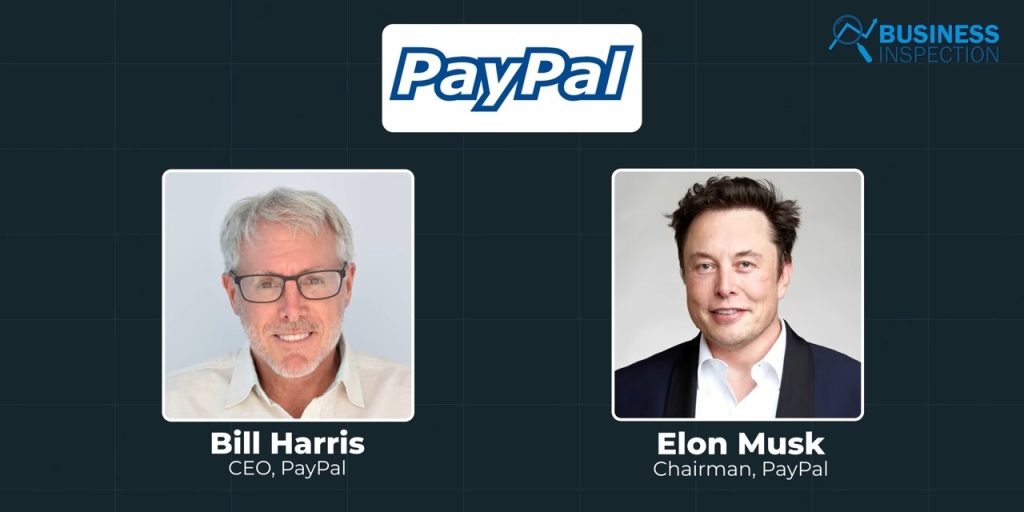
Musk aimed to emphasize the X.com brand by eliminating any references to PayPal in the company’s branding and advertisements. However, this decision was met with opposition from Confinity’s founders and employees, who preferred to retain the PayPal name. During this time, Musk happened to be in Australia on his honeymoon.
In his absence, the company’s board made a crucial decision. They voted Musk out of the CEO position and appointed Peter Thiel as the new CEO. When Musk cut short his trip upon learning about the board meeting, he found that Peter Thiel and Max Levchin had decided to retain him as the company’s largest shareholder and as an advisor, considering the company’s growth prospects.
Under Peter Thiel’s leadership, the company abandoned the X.com branding and continued its operations as PayPal. In 2002, PayPal successfully raised $70 (70.2) million through an initial public offering (IPO). Subsequently, in August of the same year, eBay acquired PayPal for a whopping $1.5 billion.
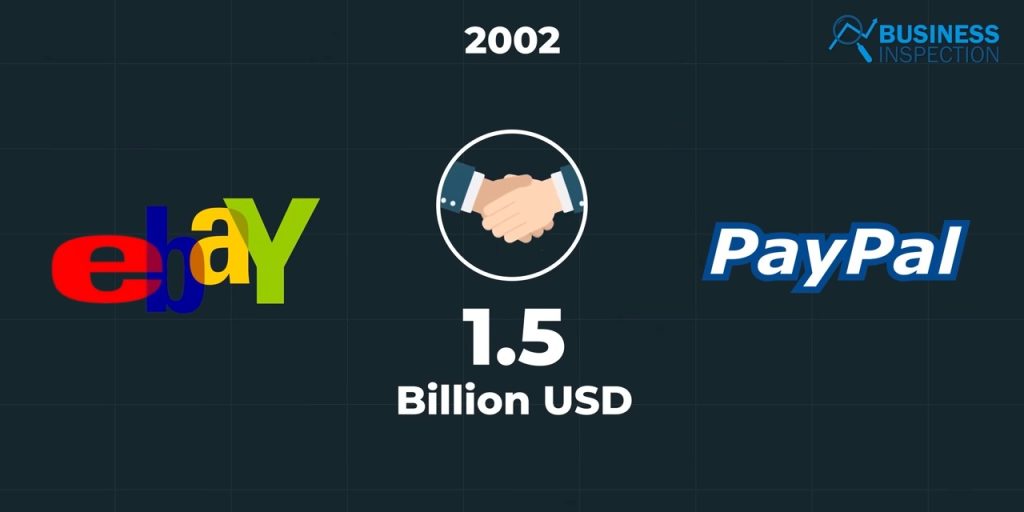
PayPal Mafia
After eBay, PayPal founders and employees began departing the company one by one, leveraging their newfound wealth to launch a diverse array of ventures. Not only did they establish their own individual enterprises, but the members of the PayPal Mafia also invested in each other’s companies. Alongside Peter Thiel and Elon Musk, this formidable group encompasses luminaries such as Max Levchin, Reid Hoffman, Jawed Karim, Jeremy Stoppelman, Russel Simmons, Luke Nosek, Keith Rabois, and many more.
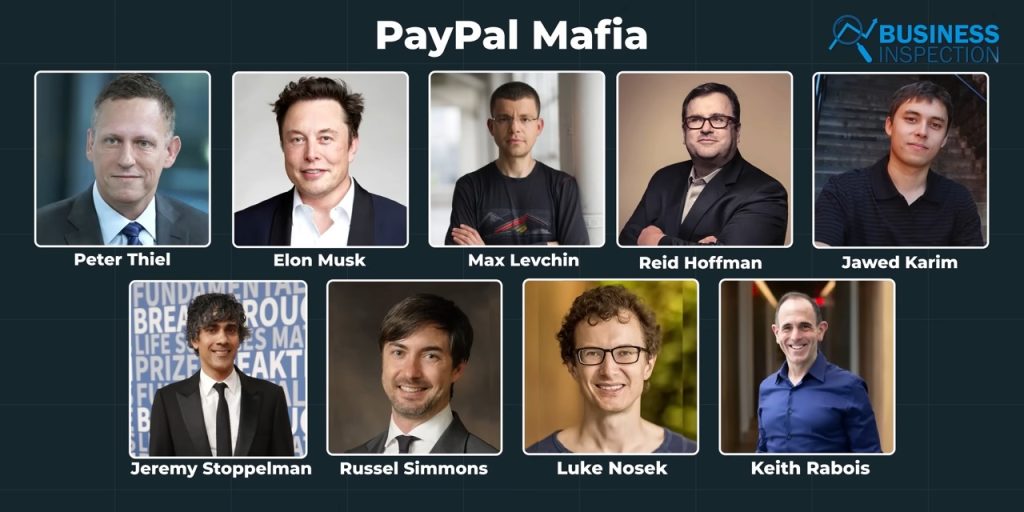
Elon Musk
As PayPal’s largest shareholder, Elon Musk earned $165 million from the eBay deal. With a childhood passion for space and fueled by his newfound wealth, Musk established SpaceX (Space Exploration Technology Corporation) in 2002. From the outset, the company’s mission centered on reducing rocket launch costs and pioneering reusable rockets to facilitate human exploration of Mars. Over the past two decades, SpaceX has achieved remarkable progress, slashing rocket launch expenses from $1.6 billion to $70 million. While Musk’s ambitious goal of reaching Mars remains a work in progress, NASA’s upcoming lunar mission, Mission Artemis, will employ SpaceX’s Human Landing System. Today, the company boasts a valuation of approximately $140 billion, making it one of the world’s most valuable private enterprises.
In addition to SpaceX, Elon Musk made significant investments in Tesla Motors, an electric car manufacturer. He first contributed over $6.35 million in 2004, becoming the company’s largest shareholder. In 2008, Musk invested an additional $20 million and assumed the role of CEO. Under his leadership, Tesla dominated the global electric vehicle industry for the following decade, delivering nearly 4 million vehicles between 2012 and 2022. Given Tesla’s pioneering position, major automotive manufacturers worldwide are now planning to transition their entire lineups to electric vehicles by 2030.
Beyond SpaceX and Tesla, Elon Musk founded other innovative technology-based companies, including SolarCity, The Boring Company, and Neuralink. He also played a role as a founder and investor in OpenAI, the creator of ChatGPT, alongside Sam Altman, although he later departed from the company. In October 2022, Musk made headlines by acquiring the social media platform Twitter for a staggering $44 billion. Currently, he is engaged in developing a superapp under the X brand name.
According to Forbes‘ THE REAL-TIME BILLIONAIRES LIST, Elon Musk currently holds the distinction of being the world’s second-richest individual, with an estimated net worth of approximately $191 billion.
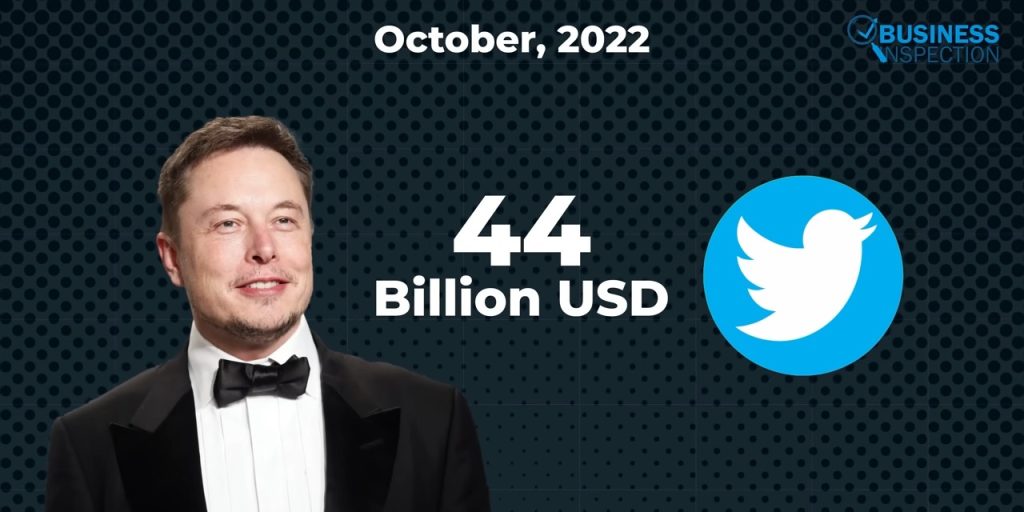
Peter Theil
Peter Thiel, co-founder and former CEO of PayPal, earned $55 million from its acquisition. With this income, he initially established Clarium Capital, an Investment Management Hedge Fund. Later in 2004, he joined forces with former PayPal employees Ken Howery and Luke Nosek to found Founders Fund. However, among the internet-based businesses, Peter Thiel’s most impactful venture turned out to be Facebook. Without him, perhaps the world’s largest social media platform, Facebook, wouldn’t have achieved such tremendous success. Peter Thiel was the sole outsider investor at the beginning of Facebook, investing $500,000, which was considered one of his most strategic investments among many. Apart from the investment in Facebook, Thiel also served as a mentor to its young CEO, Mark Zuckerberg. Additionally, in 2010, Peter Thiel established another venture capital firm called Valar Venture. His venture capital firm has invested in many companies such as Stash, Wise, Bitpanda, Novo, Atlas, and even in Bangladeshi startup ShopUp. Thus, Peter Thiel’s rich influence has extended beyond Silicon Valley and reached the startup ecosystem in Bangladesh as well. Currently, his net worth exceeds $4.2 billion.
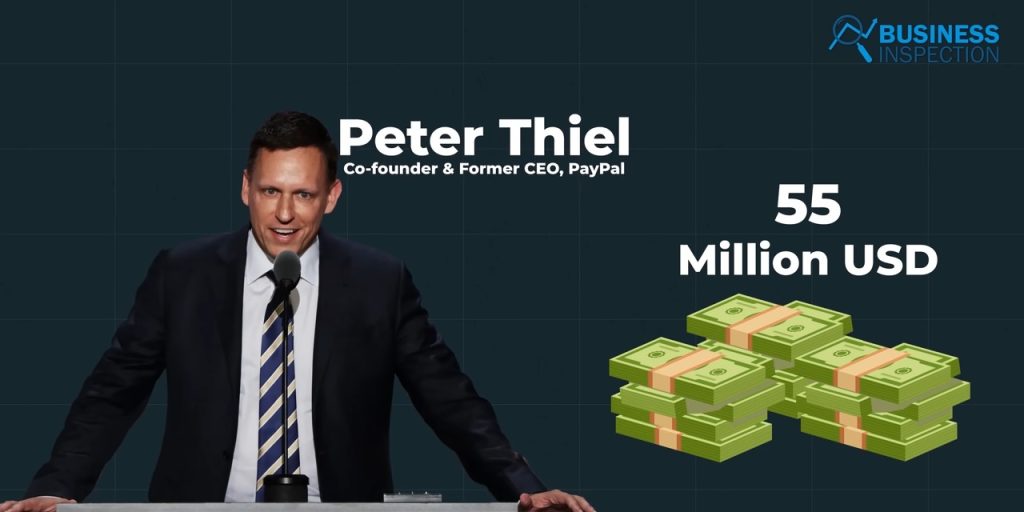
Max Levchin
Max Levchin, co-founder and CTO of PayPal joined forces with his friend Scott Banister, who received a $34 million payout from eBay, to establish a social gaming company called Slide. In 2010, Google acquired Slide for a staggering $182 million, and Levchin was appointed as Google’s Vice President of Engineering. Additionally, in 2004, former PayPal employees Jeremy Stoppelman and Russel Simmons teamed up to create Yelp, a platform for publishing reviews of any service or product online. Initially, Levchin invested $1 million in Yelp. The platform became so successful that in 2010 and 2012, Google attempted to acquire the tech giant twice, but Steve Jobs personally intervened and prohibited the sale. As of 2021, Yelp boasts over 224 million reviews on its platform and attracts more than 178 million monthly visitors. In addition to Yelp, Max Levchin has served as an investor and board member of Evernote. In 2011, Levchin founded Affirm, a Financial Technology Company that provides immediate lines of credit or buy-now-pay-later services to customers. By the end of 2022, the company had over 2 million active merchants and more than 14 million active consumers. Currently, Max Levchin‘s net worth amounts to $2 billion.
Jawad Karim
In 2002, eBay acquired PayPal, but Jawed Karim stayed with PayPal under eBay’s ownership until 2005. It was during this time that he met Chad Hurley and Steve Chen. Later, in 2005, Jawed Karim, Chad Hurley, and Steve Chen joined forces to launch YouTube, the world’s most popular video-sharing and streaming platform. YouTube has become the largest video-sharing platform globally, with over 700,000 hours of video uploaded daily, even surpassing Google as the world’s second-largest search engine platform. Recognizing its immense potential, tech giant Google acquired YouTube in the following year for a staggering $1.65 billion. Currently, the platform boasts nearly 3 billion users who collectively spend over 1 billion hours watching videos on YouTube every day. Along with its success, YouTube has spawned a content creation industry worth approximately $50 billion, revolutionizing employment and impacting various fields of marketing. In 2008, Jawed Karim, former PayPal employee Kevin Hartz, and Keith Rabois founded Youniversity Ventures, a business aimed at assisting students and graduates in developing business ideas. It is estimated that Jawed Karim’s net worth is approximately $310 million today.
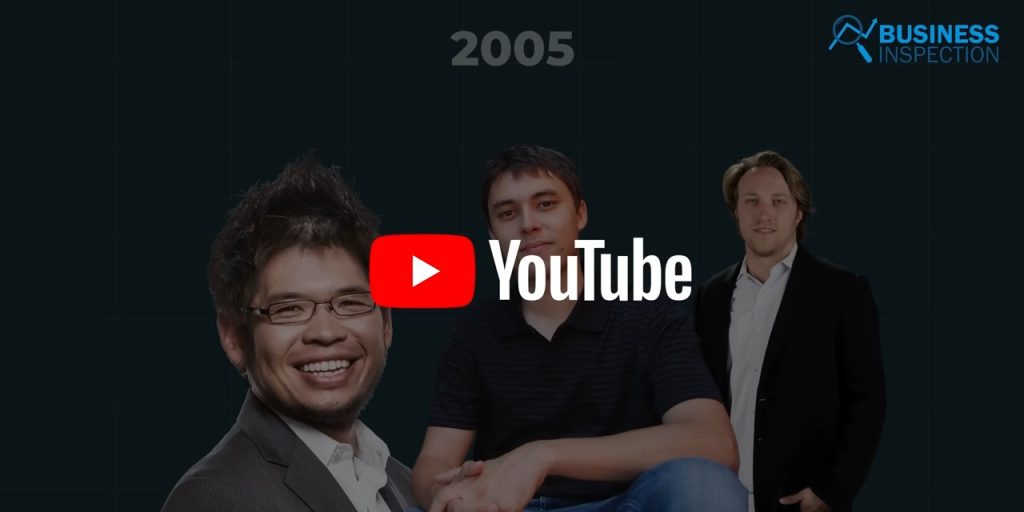
Reid Hoffman
PayPal’s Chief Operating Officer, Reid Hoffman, teamed up with former PayPal employee Keith Rabois in 2003 to establish a professional social networking platform called LinkedIn. It gained immense popularity for job searches, skill development, and creating professional networks through social media. Additionally, LinkedIn has been successful as a B2B advertising platform. In 2022, the platform generated $6 billion in revenue through Talent Solutions and an additional $5 billion through Marketing Solutions. In 2016, Microsoft acquired LinkedIn for a whopping $26.2 billion. Currently, LinkedIn boasts over 850 million users/members, with a projected net worth of $100 to $150 billion. Apart from LinkedIn, Reid Hoffman has also invested in around 80 different companies, including Facebook, Zynga, Flickr, Digg, and Last.fm, through angel rounds.
Sanjay Bhargava
May not be widely recognized among the PayPal Mafia members, one of the most impactful individuals among them is Sanjay Bhargava. After leaving PayPal following its acquisition by eBay, Sanjay Bhargava went on to invent the internet’s most popular pre-verification service called ‘Captcha.’ CAPTCHA, which stands for Completely Automated Public Turing test to tell Computers and Humans Apart, is primarily a security feature used to ensure that automated software cannot access a website without human involvement. In addition to securing access, CAPTCHA also assists websites and their users in preventing spam, bots, and other forms of automated abusive behavior.
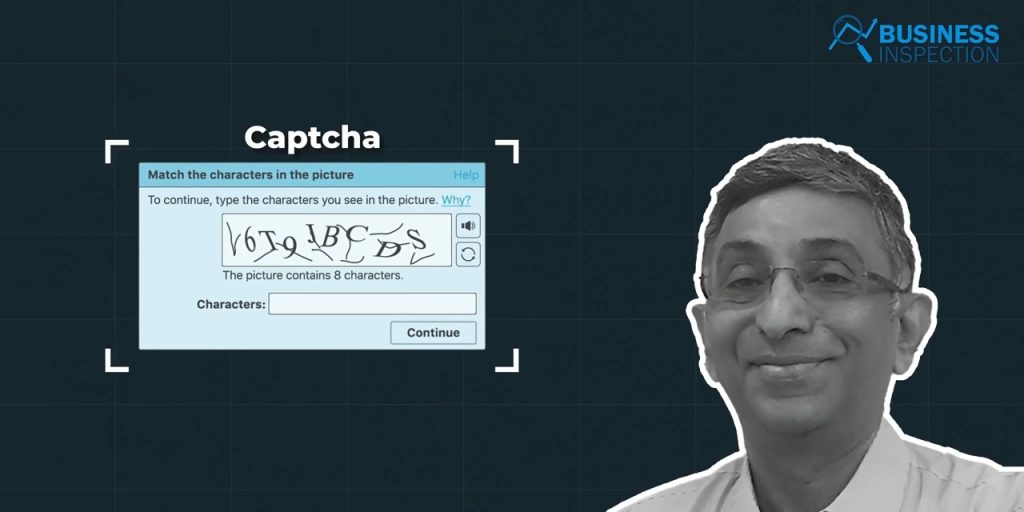
David O. Sacks
David O. Sacks, a notable figure in the PayPal Mafia, produced the satirical comedy movie “Thank You for Smoking” in 2005. Over the past two decades, he has made investments in various tech-based companies worldwide, including Airbnb, Eventbrite, Opendoor, Postmates, Scribd, Slack, and Uber. Among these investments, Uber currently holds a market cap of around $64 billion, while Airbnb stands at approximately $80 billion. Additionally, Slack boasts over 10 million daily active users.
The members of the PayPal Mafia have been at the forefront of the tech industry, either founding or funding numerous tech startups since their PayPal days. It is often said that powerful people emerge from powerful places, but in this case, it’s clear that these powerful individuals have made the places powerful. Their influence has significantly shaped Silicon Valley as we know it today. In fact, some members have become founders of Silicon Valley’s largest investment funds, fueling the rapid growth of other ventures in the region.
Peter Thiel, the leader of the PayPal Mafia, played a pivotal role in the success of Facebook by providing initial funding. Without his support, Facebook might not have become the world’s largest social media platform. Similarly, other members like Jawad Karim, who co-founded YouTube, and Reid Hoffman, who founded LinkedIn after leaving PayPal, have made their mark on the tech landscape. The PayPal Mafia’s significant contributions have shaped the current state and culture of the tech world, as well as Silicon Valley itself.

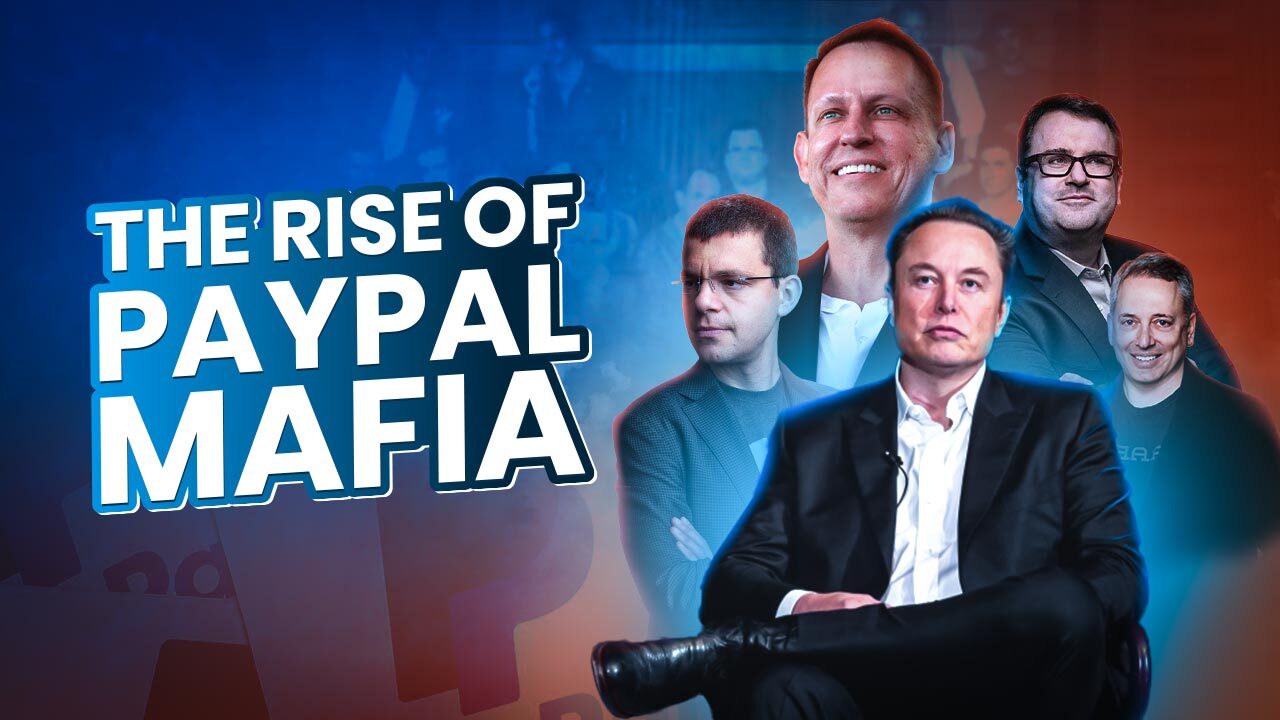
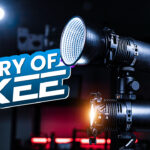
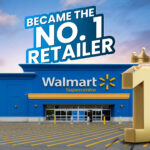

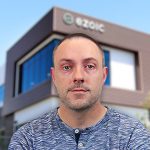




Leave a Comment